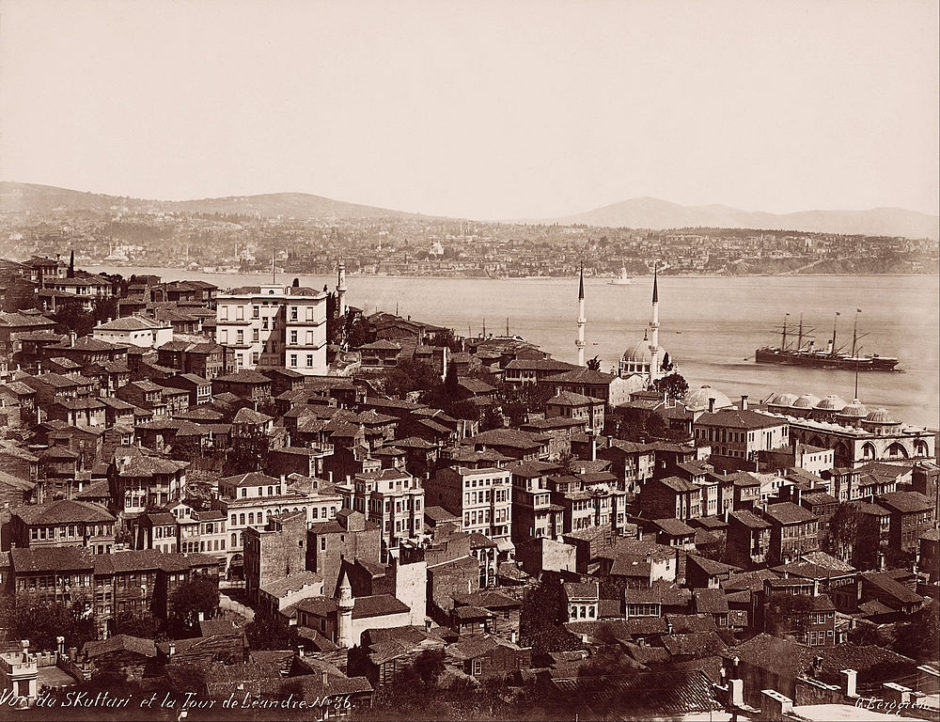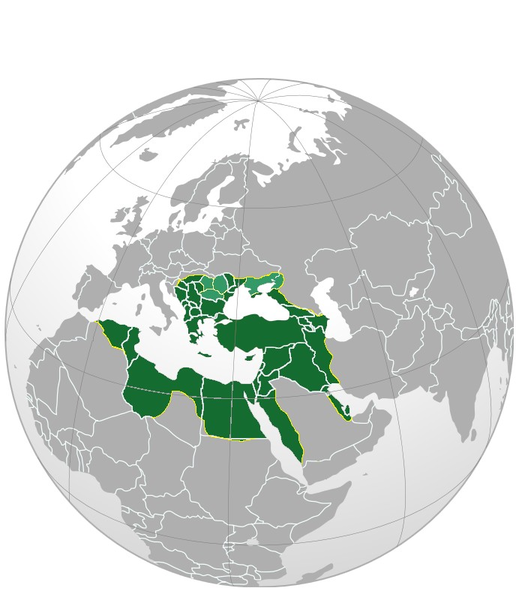
Julia Phillips Cohen’s path-breaking book, Becoming Ottomans: Sephardi Jews and Imperial Citizenship in the Modern Era, published by Oxford University Press, is the first to tell the story of Jewish political integration into a modern Islamic empire.
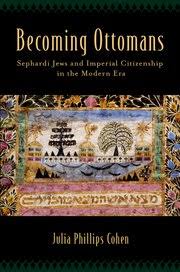
The process, which began with the Tanzimat reforms enacted by the Ottoman Empire from 1839-1876, emancipated non-Muslim minorities. From that point onward, she says, “Ottoman Jews collectively took it upon themselves to learn and teach each other how to become citizens of their empire.”
Jews were admitted to Ottoman lands by sultan Bayezid II following their expulsion from Spain in the late 15th century. There they found a safe haven and a place of tolerance. But there were times when the bonds between the Ottoman government and its Jewish subjects were by no means assured, writes Phillips, a professor of history and Jewish Studies at Vanderbilt University.
This was certainly the case during the reign of Bayezid II (1481 to 1512), who, while encouraging Jews to settle in his domains, closed newly opened synagogues and pressured Jews to convert to Islam.
Viewed from this perspective, Phillips adds, Ottoman-Jewish relations were “more complex” and “significantly more troubled” than popular narratives suggest. She goes as far as to argue that the “special” Ottoman-Jewish relationship was little more than a myth.
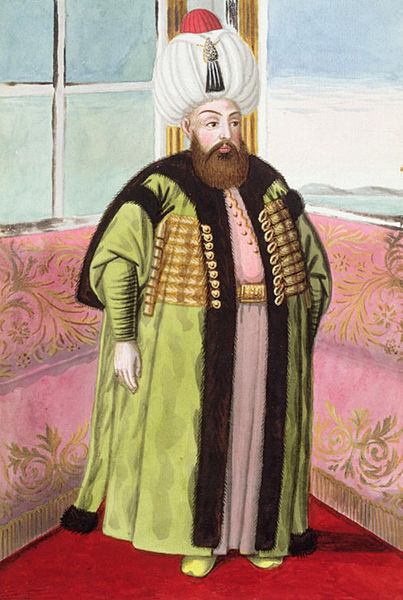
By the 18th century, she notes, Jews had begun to lose many of the “economic niches” they had filled in earlier centuries, including their important role in textile production, international commerce and in the sultan’s court. By the 19th century, she observes, they were an afterthought in national politics. And unlike Greeks and Armenians, Ladino-speaking Jews faced obstacles in finding employment in the civil service because so few were proficient in Ottoman Turkish.
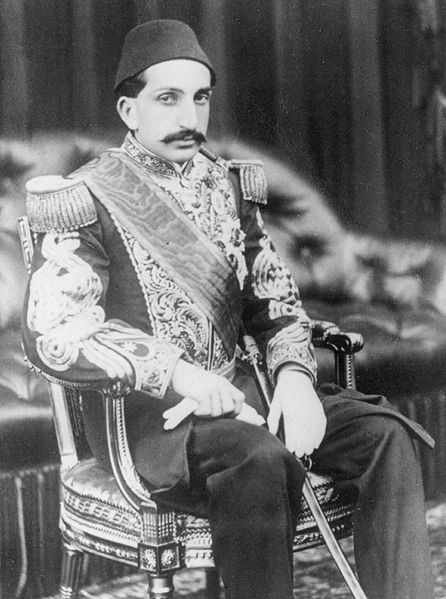
As the Tanzimat proceeded and Abdulhamid II ascended to the throne, Jewish communal leaders in Istanbul, Salonica and Izmir, among other cities, worked on two overlapping projects. They tried to instil in their co-religionists a sense of Ottoman patriotism and brotherhood. They also sought to raise their community out of its obscurity, poverty and backwardness so that Ottoman Jews would be as esteemed as other non-Muslims.
“No less important, they hoped to prove that Ottoman Jews, as a collective, were true friends of the empire, dedicated to their country’s cause and willing to sacrifice all to support it,” says Phillips.
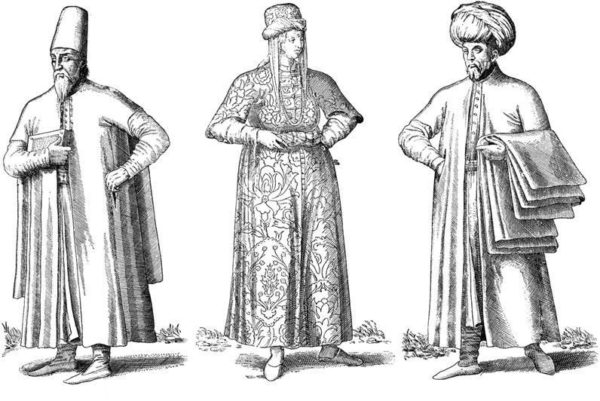
Feeling indebted to an empire that had granted their ancestors shelter from persecution and religious freedom, Jewish writers portrayed Ottoman authorities as the first to emancipate Jews and the most tolerant power on earth. This attitude served Jews well, but strained their ties with other minorities chafing under Ottoman rule.
In 1911, when the sultan visited Salonica, the chief rabbi, Jacob Meir, described Jews as the most loyal and least troublesome millet. As he said, “I am pleased to report that nowhere in your vast empire does there live one single Jew who does not love and venerate his beloved homeland.”
He could have cited events in the city of Larissa as an example of Jewish loyalty to the empire. In 1897, Jews there openly celebrated the Ottoman conquest of that Greek city. When Greek forces recaptured Larissa in the following year, Jews suffered greatly. Jewish merchants and communal leaders were imprisoned, prompting Jews and Muslims to flee, never to return.
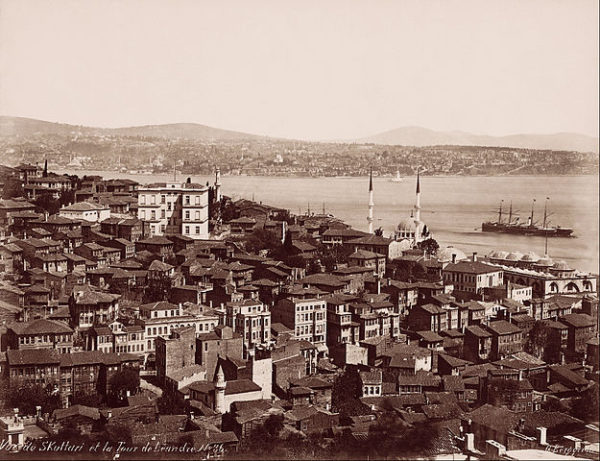
Fearing that the Jewish nationalist movement could compromise the position of Jews, the Ottoman Jewish leadership, as well as Jewish deputies in the Ottoman parliament, rejected Zionism. Zionists countered that Jewish immigrants to Palestine, an Ottoman colonial holding, would promote economic growth. But as Phillips points out, they were careful not to promote Jewish statehood in Palestine.
Looking back at the centuries old relationship between Jews and Turks, she concludes, “The discourse of a special Ottoman-Jewish friendship has served as an effective counterweight in Turkey’s attempts to conduct an image management campaign in response to objections to its treatment of its Kurdish population, was well as calls for the government to recognize the mass annihilation of Ottoman Armenians as a genocide.”
To Phillips, the narrative of Ottoman tolerance toward Jews sends another message, namely that they have been “permanent guests in the country in which they had been settled for centuries.”

She illustrates her point with this story:
“In 1991, when a Turkish Jewish reporter explained to the Turkish consul-general in Marseilles that Turkish Jews ‘feel a sense of gratitude’ to Turkey, while noting that they felt genuinely Turkish, the consul-general simply replied, ‘In order to feel gratitude, you cannot be one of us. If you actually feel that you are Turks, there is no need to feel gratitude.'”
